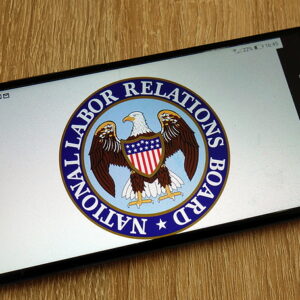Unions, frustrated by steadily declining membership, believe workers should hear only from union advocates during organizing drives. They believe management should remain “neutral” — that is, silent. Any messages from management, they argue, interfere with workers’ rights to form a union and therefore constitute “union busting.”
The National Labor Relations Board, the federal agency charged with enforcing union laws, agrees. In a memo to the board released in April, NLRB General Counsel Jennifer Abruzzo called on the NLRB to prohibit employers from holding mandatory meetings with employees on unionization. “This license to coerce (attendance) is an anomaly in labor law, inconsistent with the (National Labor Relations) Act’s protection of employees’ free choice. It is based on a fundamental misunderstanding of employers’ speech rights,” she argued. The board hasn’t formally responded to the request.
Abruzzo, a former top lawyer with the Communications Workers of America, also called on the agency to unilaterally adopt “card check” rules for all union elections. Under current rules, unions can demand recognition once they can present management with cards signed by a majority of workers. Management can request a secret ballot election overseen by the NLRB to verify the union’s claim.
Prohibiting management from making that request would effectively end secret ballot votes in most union certification elections. Management typically uses the lead-up time to an election to make the case against a union. Card check would take that time away. The board hasn’t formally responded to this request either.
In October, the NLRB hit Amazon CEO Andy Jassy with an interference complaint for telling CNBC that unionized workers would find their workplaces “more bureaucratic” with less individual autonomy and for telling Bloomberg that the workers would be “better off without a union.” He argued that the company had an open-door policy that made it easy for individual employees to demand changes, and “that type of empowerment doesn’t happen when you have unions.”
Amazon isn’t the only corporation to face such charges. Starbucks CEO Howard Schultz was hit in October for comments regarding unions, indicating that the NLRB is taking a harder line on corporate speak generally. Corporations like Amazon have the resources, legally and financially, to contest charges by agencies like the NLRB. Smaller companies may not. They’re also less likely to have experience with the laws and regulations regarding unions. Smaller businesses facing a union organizing bid will be second-guessing themselves on anything they say publicly or to their workers lest the NLRB hits them with a complaint.
The National Labor Relations Act prohibits management from doing anything that would “interfere with, restrain or coerce” workers exercising their union rights. Traditionally, management could provide workers with information regarding unions they considered important but had to walk a fine line not to threaten workers regarding exercising their rights.
The standard was what workers could reasonably construe as a threat. The manager’s intent when making a comment was irrelevant. Union activists, by contrast, were given wide latitude to disparage the company and its management.
The NLRB is cracking down on what managers can say about unions while its general counsel is proposing rule changes that would limit the time managers have to say anything and prevent them from requiring employees to listen.
Ultimately, the ones most affected will be the workers. Management is usually the only way for workers to get a different perspective on joining a union. Unions have no incentive to tell workers about their rights to withhold the share of their dues that pay for activities outside of collective bargaining.
Ultimately, the decision is still up to the workers themselves. If they decide they want a union, they should have it. But they should know what they are getting themselves into first. A union is a major step that changes everything about their workplace, creating a perpetual confrontational situation with the company, and it can’t always be easily undone if they decide it was a mistake.

